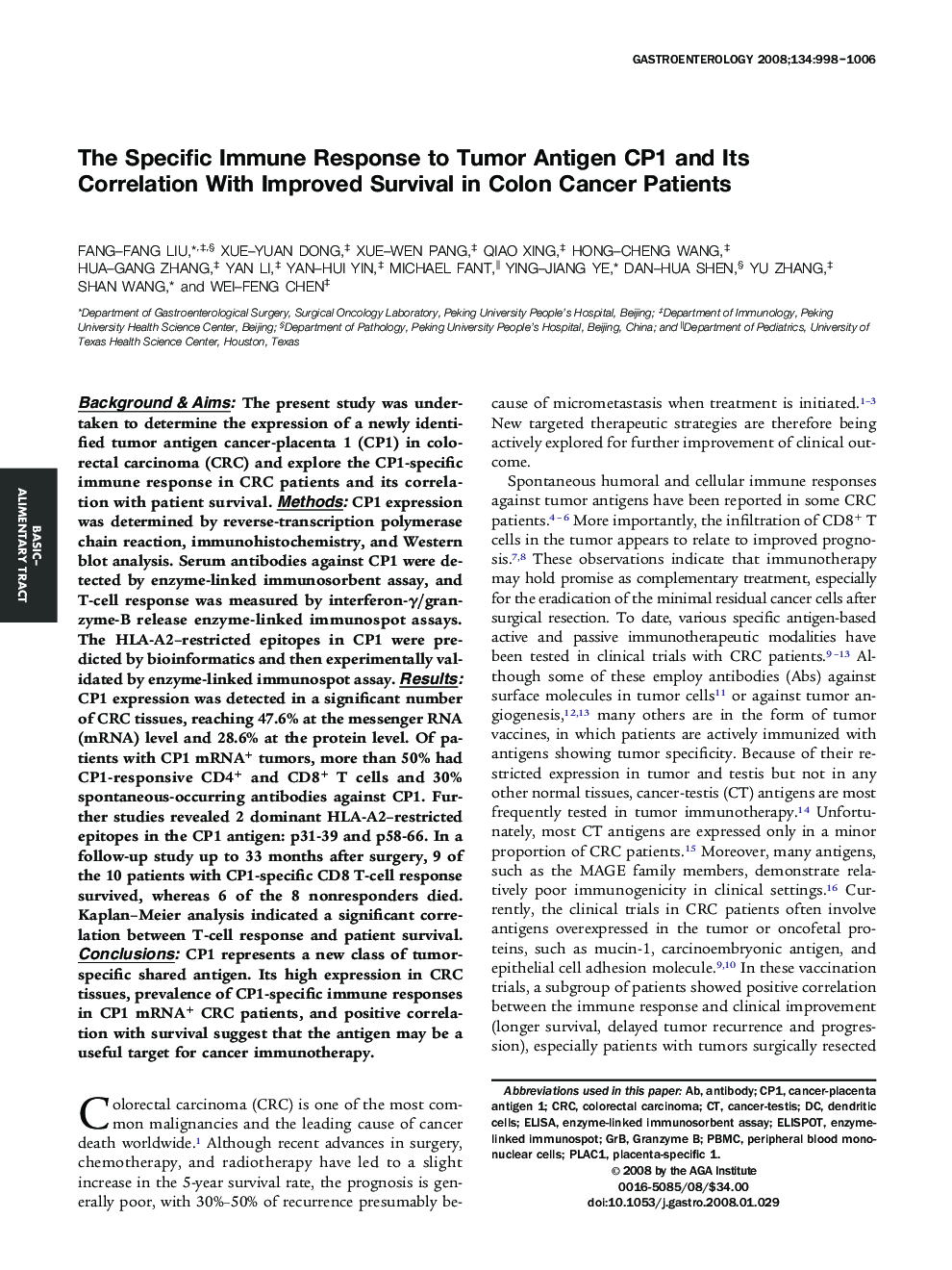| کد مقاله | کد نشریه | سال انتشار | مقاله انگلیسی | نسخه تمام متن |
|---|---|---|---|---|
| 3295569 | 1209857 | 2008 | 9 صفحه PDF | دانلود رایگان |

Background & Aims: The present study was undertaken to determine the expression of a newly identified tumor antigen cancer-placenta 1 (CP1) in colorectal carcinoma (CRC) and explore the CP1-specific immune response in CRC patients and its correlation with patient survival. Methods: CP1 expression was determined by reverse-transcription polymerase chain reaction, immunohistochemistry, and Western blot analysis. Serum antibodies against CP1 were detected by enzyme-linked immunosorbent assay, and T-cell response was measured by interferon-γ/granzyme-B release enzyme-linked immunospot assays. The HLA-A2–restricted epitopes in CP1 were predicted by bioinformatics and then experimentally validated by enzyme-linked immunospot assay. Results: CP1 expression was detected in a significant number of CRC tissues, reaching 47.6% at the messenger RNA (mRNA) level and 28.6% at the protein level. Of patients with CP1 mRNA+ tumors, more than 50% had CP1-responsive CD4+ and CD8+ T cells and 30% spontaneous-occurring antibodies against CP1. Further studies revealed 2 dominant HLA-A2–restricted epitopes in the CP1 antigen: p31-39 and p58-66. In a follow-up study up to 33 months after surgery, 9 of the 10 patients with CP1-specific CD8 T-cell response survived, whereas 6 of the 8 nonresponders died. Kaplan–Meier analysis indicated a significant correlation between T-cell response and patient survival. Conclusions: CP1 represents a new class of tumor-specific shared antigen. Its high expression in CRC tissues, prevalence of CP1-specific immune responses in CP1 mRNA+ CRC patients, and positive correlation with survival suggest that the antigen may be a useful target for cancer immunotherapy.
Journal: Gastroenterology - Volume 134, Issue 4, April 2008, Pages 998–1006